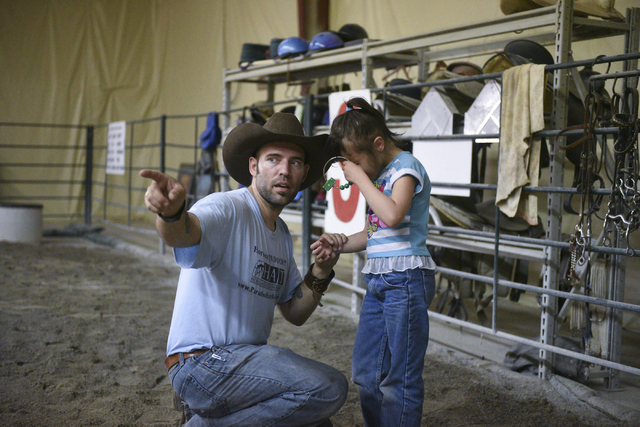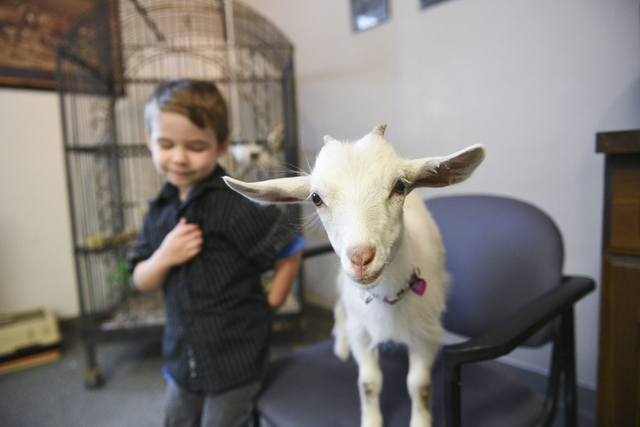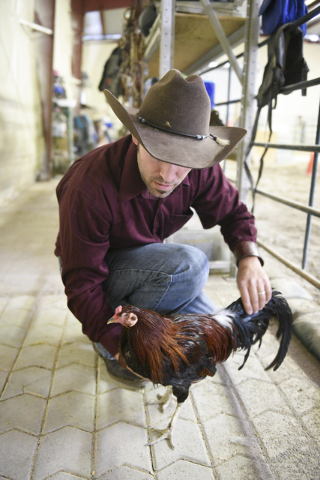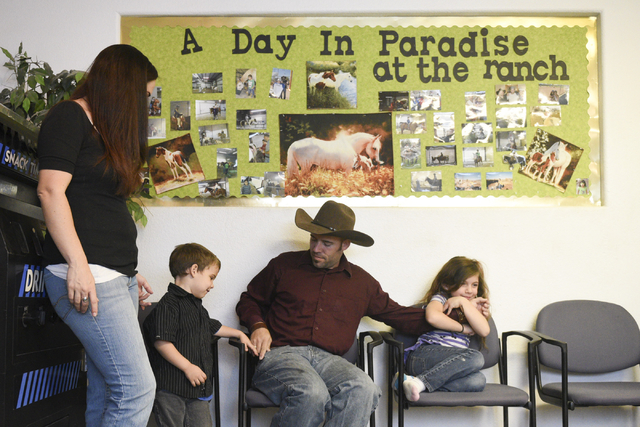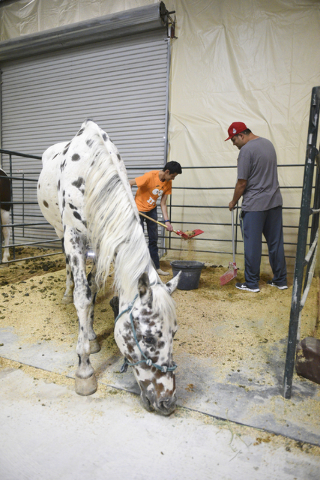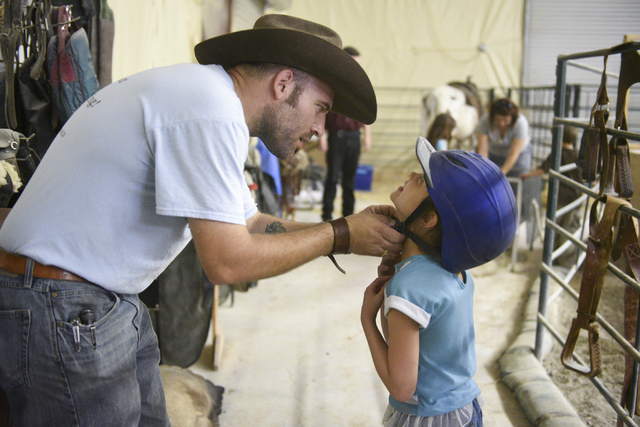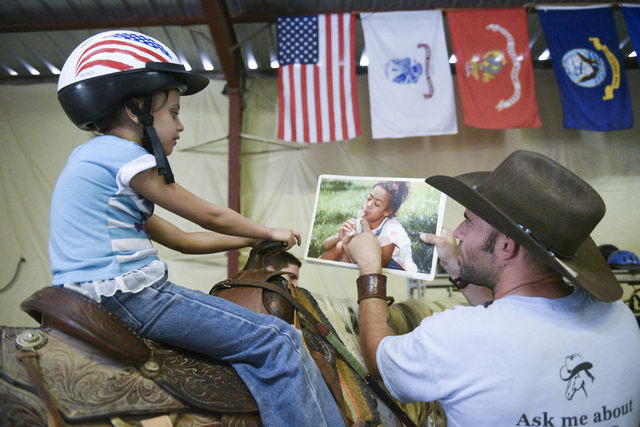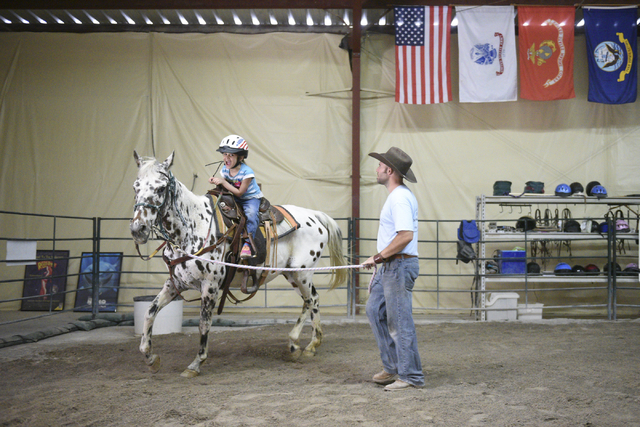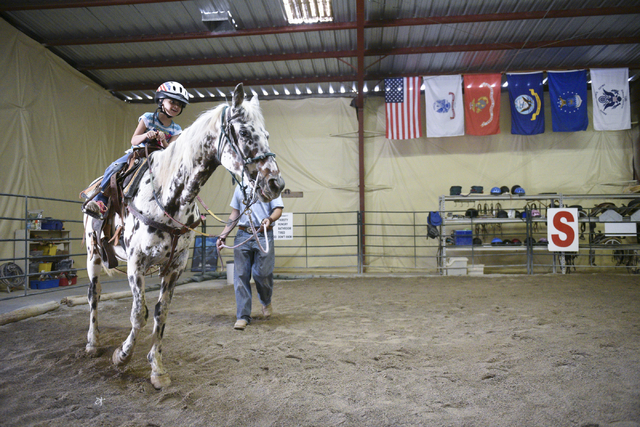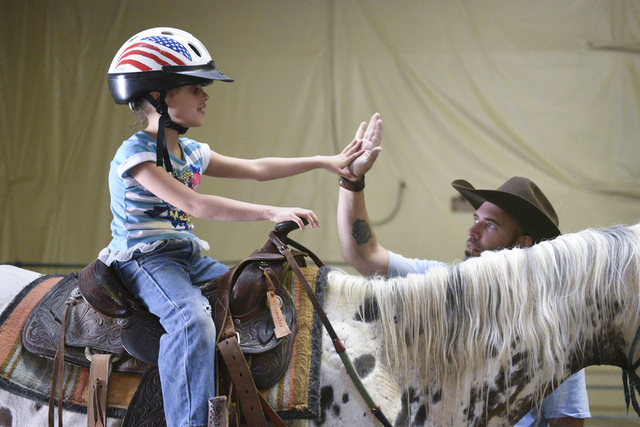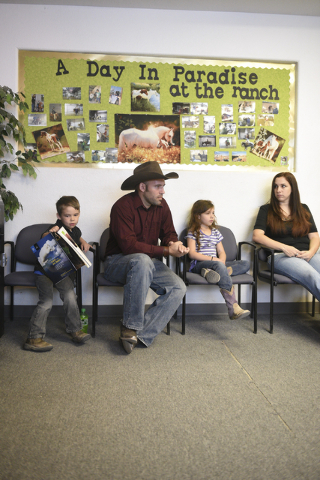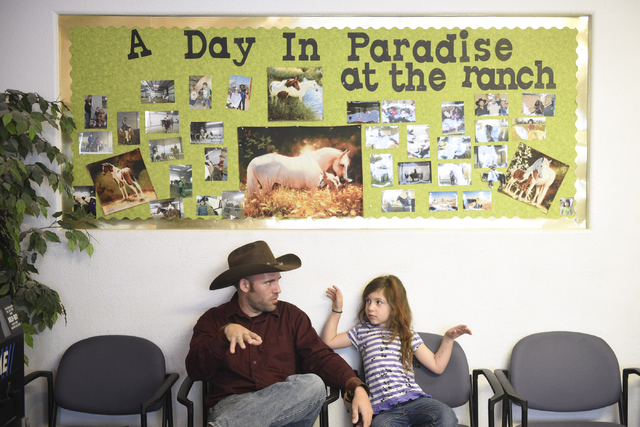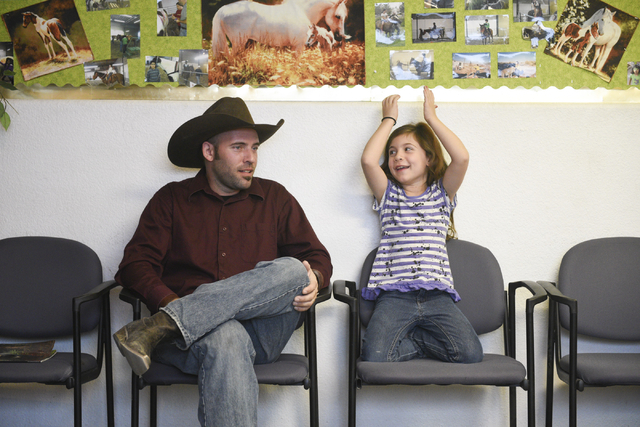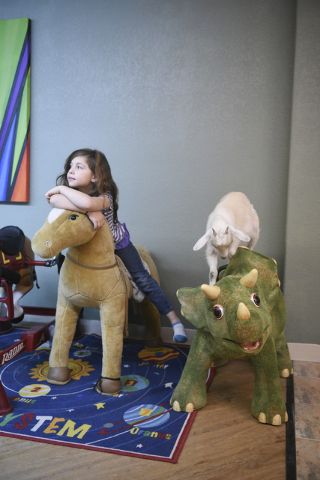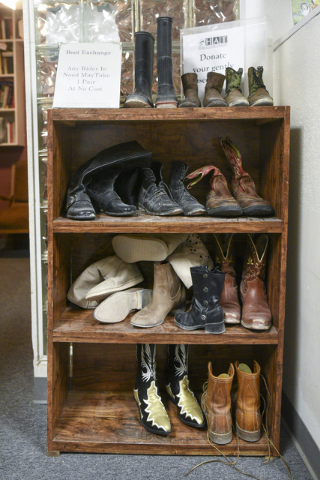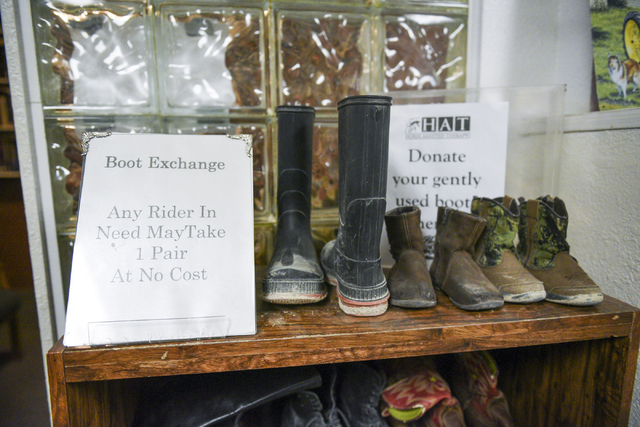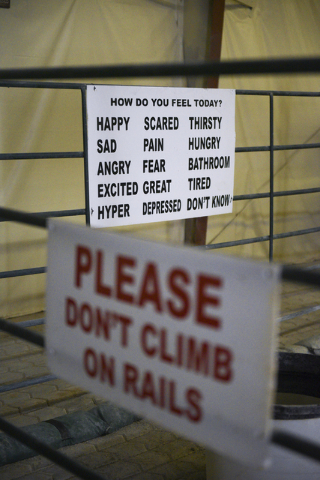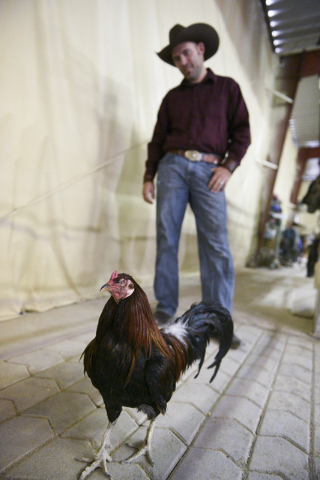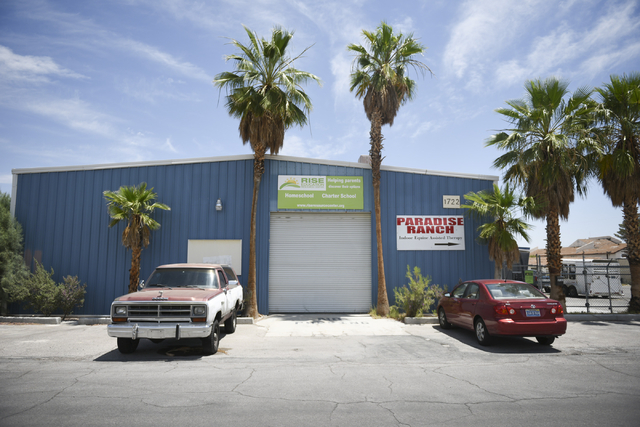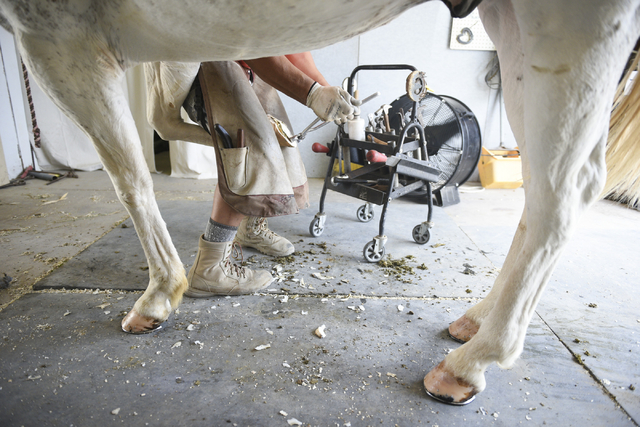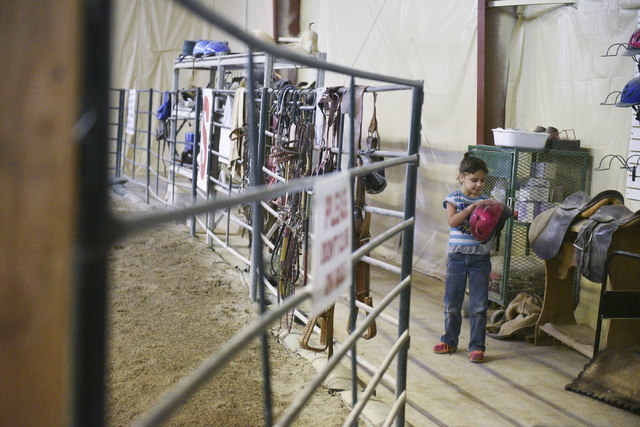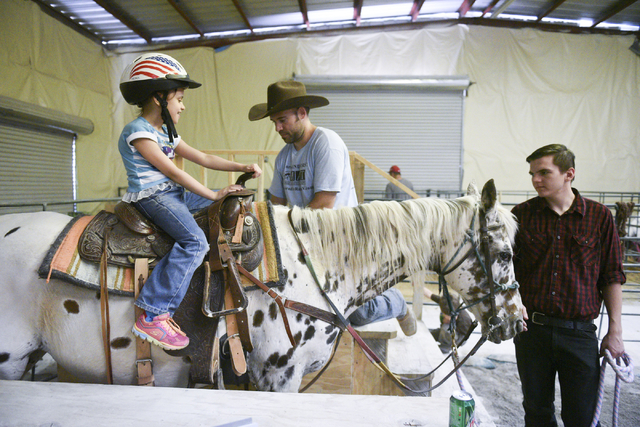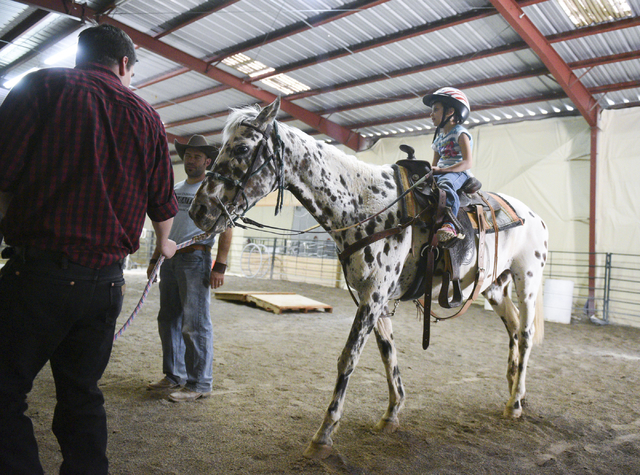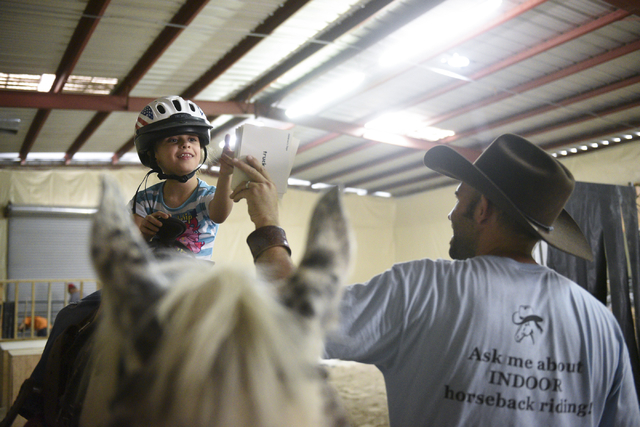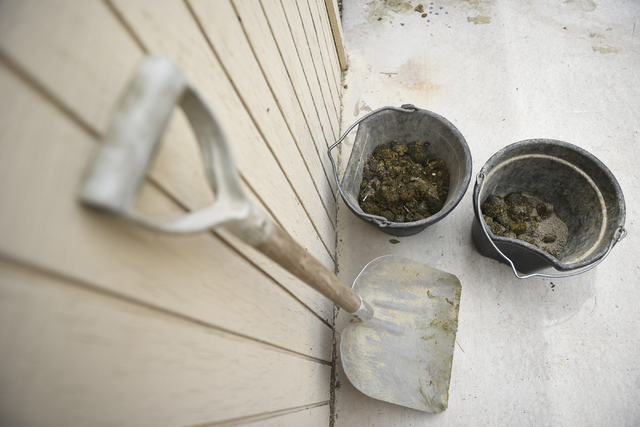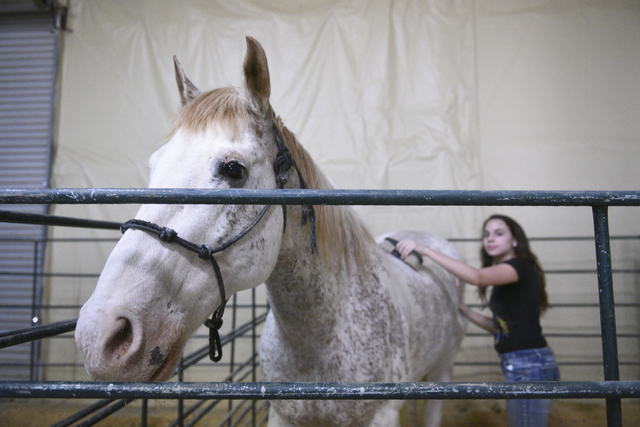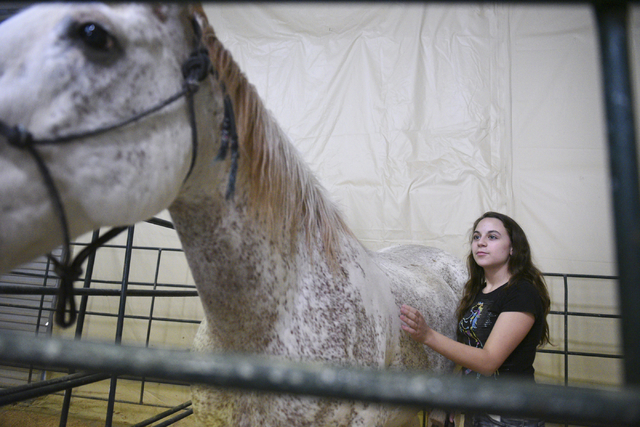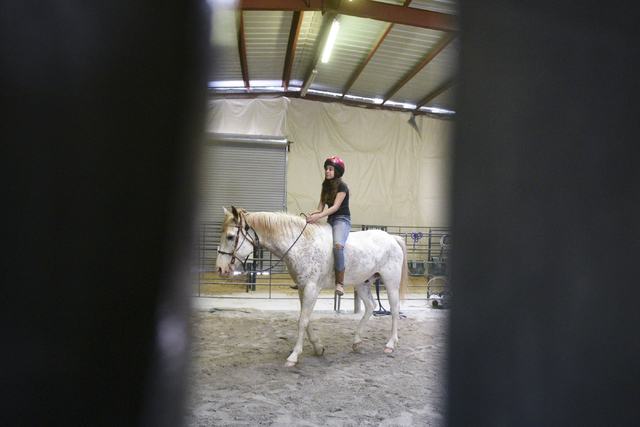Father extends family circle to community’s troubled youths
Paul Rogers has filled many roles — stepfather, adoptive father, biological father and father figure to community youths.
The retired U.S. Marine has guided not only his own children but also many at-risk youths and people with special needs in turning their lives around.
“I think Paul is blessed with patience,” said his wife, Stephanie Rogers. “Not just at work, but he’s also very patient at home. He’s a great dad. He always wants to be with his family. It might drive some people crazy to be together all of the time, but we’re a very close-knit family.”
Rogers, 35, owns Paradise Ranch at 1722 Primrose Path with his wife.
They offer horse-assisted therapy and interactive therapies for people with emotional or behavioral needs, including those with autism and Down syndrome and recovering drug addicts.
The business opened in 2011.
“All of our horses and animals are rescued or special needs,” Stephanie said.
“We have a horse named Pocahontas that was abused and didn’t want people near her at first because she didn’t trust others,” Paul said. “Some of our clients have similar stories and are able to connect with her on an emotional level. She gives the child hope.”
In addition to individual therapy, the business offers team-building activities, employee appreciation workshops, and couples retreats, which raises money for the Paradise Ranch Foundation to offer free services to those in need.
The horse ranch plans to partner with the Department of Veterans Affairs to offer a program for those suffering from traumatic brain injury in the summer.
Paul has always been involved with assisting his community.
Even as a Marine, he participated in the Juvenile All Weekend Supervision program which teaches 13- to 17-year-old troubled youths morals, ethics and fear to prevent them from following a destructive path.
After being honorably discharged from the Marine Corps from a five-year contract, he went back to school to get his master’s degree in psychology.
“I always felt called to help people who can’t help themselves,” he said. “As a Marine, I helped people on a massive scale, but I wanted to do something more direct.”
Chris Braathen, 20, has felt firsthand the enormity of Paul’s kindness.
In 2009, Braathen, then 14, knocked on Paul’s door looking for work. He was told to come back the next day, and when he did, he was paid $4 an hour until he could “prove himself.”
After working for a few weeks with the family, Braathen began sharing his story.
Braathen grew up in foster care and was living in a group home when he met Paul.
“They just accepted me,” Braathen said. “At first, I was just the kid who came over and helped around the yard, but our bond grew stronger. They eventually invited me to have dinner and spend holidays with them.”
After more than a year of knowing Braathen, the Rogerses decided to adopt him.
“The thing I struggled most with was social anxiety because I wasn’t exposed to social situations, but Paul had really guided me through life,” Braathen said. “I wouldn’t be the fraction of the man that I am now if it wasn’t for him.”
Within months of adopting him, the Rogerses built him his own room and set the house rules.
“We pushed him to graduate high school and helped him work through his (struggles),” Paul said. “He’s fallen back a few times, but I always tell him that no matter what decisions he makes, whether they’re good or bad, we’re family.”
Braathen is their oldest child. Paul also has four biological children and two stepchildren.
Perhaps what makes Paul such a caring person is his past. He lost his own father to suicide when he was 6 years old.
“I feel like maybe if my father had a place to turn, it would have been different,” he said. “Not having a father growing up made me want to try to be the father I wish I had.”
In addition to being a father and mental health provider, he also wears the hat of a teacher.
His children are home-schooled, and he teaches them with hands-on activities. Stephanie also said he helps children with special needs at his church and trains parents alternative ways to teach children more effectively and keep children’s self-esteem high.
“A father is a mentor, a teacher, a disciplinarian,” Rogers said. “He offers a safe place and is someone you can turn to when there’s no where else to go. He’s a problem solver and a caretaker. A father should love his children unconditionally even when it’s hard for children to accept because it’s for their own good.”
To reach North View reporter Sandy Lopez, email slopez@viewnews.com or call 702-383-4686. Find her on Twitter: @JournalismSandy.



